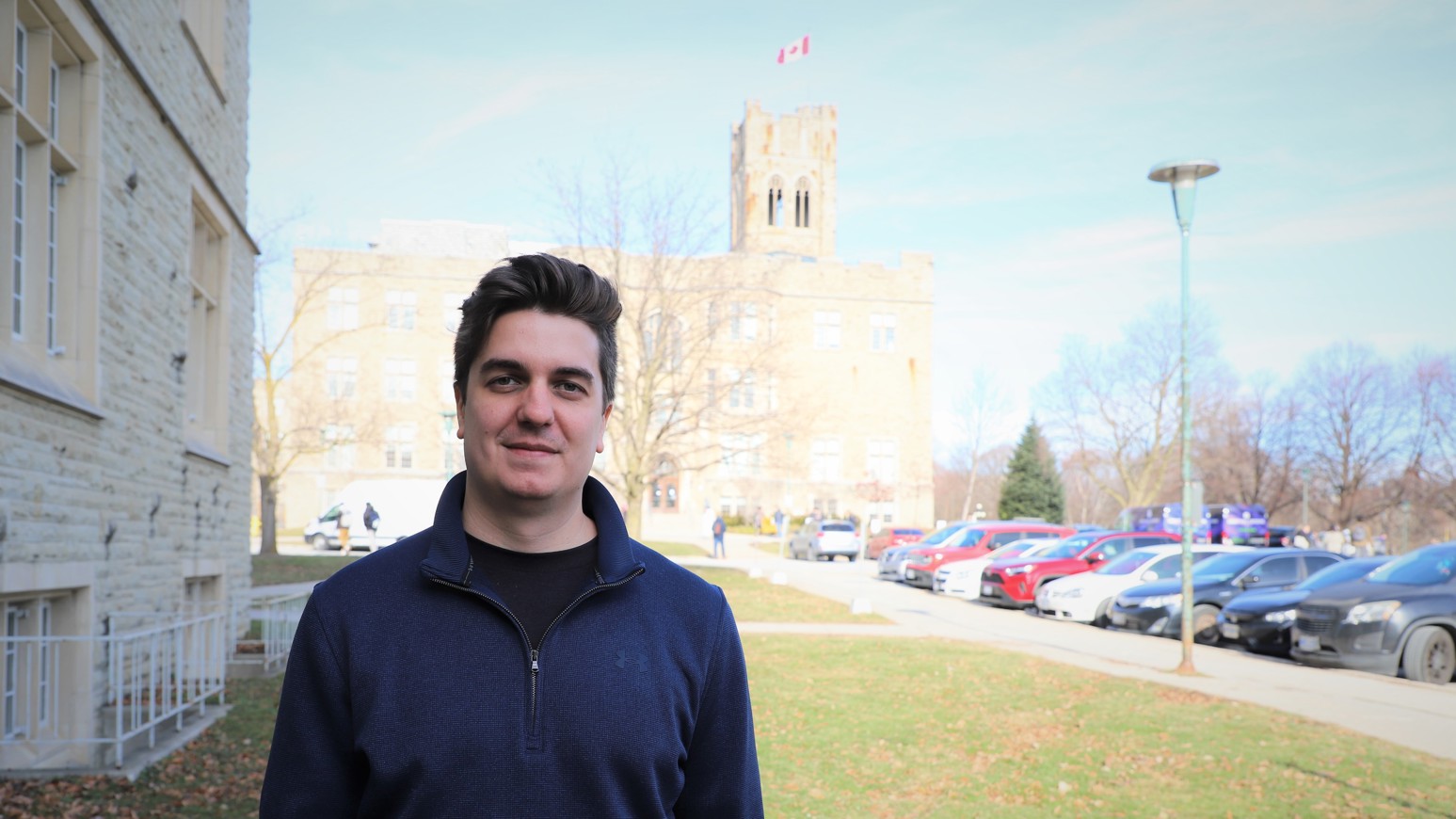The artificial intelligence (AI) craze continues!
Over the past year, millions of people have been dazzled by the capabilities of text-based generative artificial intelligence platforms like ChatGPT, or the image-generating DALL·E 2.
As AI enthusiasts discover new ways to integrate the technology into different aspects of our everyday lives, music is becoming a new frontier.
Recently, after adding a near-perfect AI-generated version of Eminem’s vocals into a song, chart-topping DJ David Guetta claimed, "the future of music is in AI."
And Dr. Jeffrey Lupker, BMus’14, MMus’16, PhD '21, agrees.
Lupker, together with Jason Kowalczyk, HBA ’14, are the co-founders of Staccato, a platform that offers generative AI tools, acting as an AI MIDI music and lyrics co-writer.
Think of it as an AI John Lennon to your Paul McCartney.
The idea is that you can overcome writer's block, take your music in new creative directions, and we even have an educational side that we will roll out to help new musicians.
There are two main applications on the website. The first and perhaps the most innovative feature on Staccato is the music app. Here, a musician can input a section of music they are working on and quickly receive a continuation of that music from the AI. The second application is for AI lyrics. Staccato helps songwriters find new rhymes, suggests lyrics that may come next, and can even generate lyrics simply from a mood and some key phrases.
"I hated writing lyrics. They were always super cheesy. If I had something that helped me fix problematic areas of my lyrics, I would have felt more comfortable showing it to other people," said Lupker.
Unlike ChatGPT, Staccato doesn’t spit out the lyrics for an entire ‘Taylor Swift-inspired song about waffles,’ but instead, is meant to work in tandem with the creative flow of an artist, offering suggestions section by section.
This human-centric approach which differentiates itself from many other AI platforms is at the heart of Staccato. Lupker believes that a symbiotic relationship between the power of AI and human creativity is possible and it can create some beautiful music, together.
Music's next chapter
Performing, writing, and studying music has been a constant in Lupker’s journey. Additionally, he was always fascinated with technology. He has completed three degrees in Music at Western University, but throughout his Master’s, Lupker started exploring ways to connect his love for music and technology. Diving deeper into that well during his PhD, Lupker’s dissertation work combined AI with music creation, leading to the development of new software that would ultimately become Staccato’s minimal viable product (MVP).
Now, it’s the core of his new start-up.
The relationship between music and technology has been a consistent theme, particularly in the last century. Ever since the introduction of simple microphones, magnetic tape, and amplification tools, there has been no turning back.
Given these evolving trends, Lupker sees AI as the next logical step in that story. However, it’s important to keep the integrity of what music represents while engaging with the latest tools; reminding ourselves that music is a form of self-expression.
Over the next few months, Lupker will be working on Staccato at the Western Accelerator. His immediate goal is to increase sign-ups and get more feedback from users through its free application, which seems to be an effective method to amass users of new generative AI tools. For example, in early February, ChatGPT reached 100 million users in 2 months, making it the fastest-growing consumer internet app ever.
Staccato is currently operating in a more defined niche, primarily targeting musicians. This level of technical proficiency is particularly handy with Staccato’s music generation tools that require some knowledge of creating and using MIDI files.
MIDI is short for Musical Instrument Digital Interface which is a protocol that allows computers, musical instruments, and other hardware communicate with each other. “MIDI allows the users to effortlessly generate AI music on the platform, and it will work with any of their favourite music plugins, synthesizers, or software, reducing potential learning curves,” said Lupker.
To demonstrate the quality of AI-generated music, part of Staccato’s marketing campaign features a Soundcloud game with their growing community. The game is simple: find the moment in a musical example where the human stops and Staccato’s MIDI AI takes over by commenting at that exact spot. The closest answer can get 3 free months of premium access. Do you think you can find where the AI begins?
As Staccato continues to grow, Lupker is looking to add a number of features to the platform in the near future, including a copyright checking tool, text-to-music to help those less familiar with MIDI editors, and eventually the utilization of audio files (such as MP3s, WAVs, or AACs). Ultimately, Staccato wants to become the number one place for music creators to find AI-powered plugins and tools to help them write their next big hit.
Lupker is excited to discover what’s next for his start-up. Is it an uplifting chorus or a tension-filled bridge?
Perhaps Staccato can help us figure it out.
